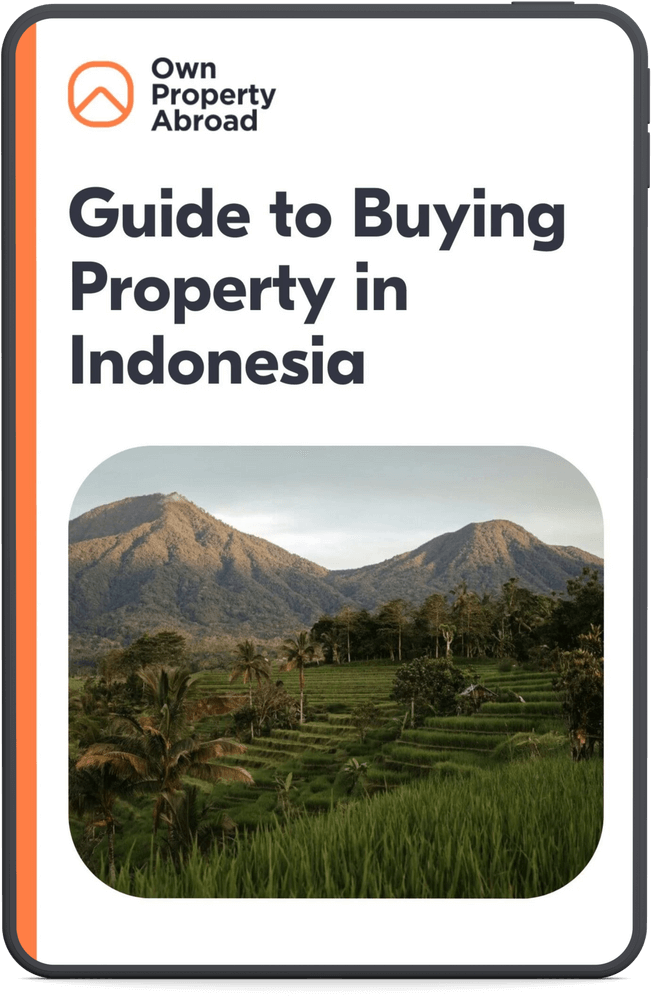1. Property flipping scams in Indonesia
Property flipping is a strategy where someone buys a property in Indonesia intending to re-sell it for a much higher price for a considerable profit without making any minor improvements or renovations. The property flipping scam is not illegal in Indonesia unless the person falsely represents the condition and value of the property, as this is a form of fraud.
These types of real estate scams in Indonesia are designed to prey on buyers eager to invest in real estate without doing their due diligence and researching the market. Foreigners, who are mostly unfamiliar with Indonesian real estate law and the market, are easy targets for this scam.
Valuable insights and practical advice, distilled from years of expertise and real-world experience.


2. Indonesia’s false real estate ownership scams
False ownership scams involve a person or group posing as the legal owners of a property and trying to sell or rent it to unsuspecting buyers or tenants. They may claim possession with fake land certificates, deeds, or land titles. Scammers may target uninhabited, abandoned, or foreign-owned buildings. They may also pretend to own land by claiming ownership with false paperwork.
These property scams can lead to buyers or tenants of Indonesian property paying considerable sums for a property they don’t legally own or use. When the actual property owner surfaces, the victims may face legal battles or eviction, resulting in considerable financial losses and legal issues.
The land register office or a respectable real estate agent should check property ownership to avoid fake ownership scams. Legal documents must be checked for authenticity and legality.

3. Rental deposit scams in Indonesia
In a rental deposit scam, a fraudster appears as a landlord or property owner in Indonesia and takes a big deposit from a prospective tenant before disappearing. The fraudster may rent a house at a low price and require a high deposit to secure it. After receiving the warranty, the fraudster will vanish, leaving the tenant without the property or their money. Property scammers may use false rental agreements, identity documents, and other methods to appear real. In 2018, the Saudi princess lost $37 million in this type of real estate scam in Bali.
Before paying:
- Verify the landlord’s identification to avoid rental deposit scams.
- Request a receipt and ensure the rental agreement is legally enforceable and includes the rental price, payment terms, and landlord’s contact information.
- Be skeptical of too-good-to-be-true deals and inspect the property in person.
4. Timeshare fraud in Bali
The timeshare scam is widespread in Bali and involves fraudulent sales or villa rentals. These scams target tourists and travelers in Bali who want to buy or rent a Bali timeshare. A high-pressure salesperson posing as a timeshare company representative may offer a vacation package or timeshare ownership at a low price. The salesperson may provide freebies, incentives, or discounts to get the victim to sign.
The timeshare property may not exist or differ from the sales presentation in many circumstances. The victim may also be charged hidden fees or maintenance expenses. This real estate scam in Bali can also happen in other parts of Indonesia.
Before paying or signing:
- Study the company and property to prevent Bali timeshare scams.
- Consult a professional real estate agent or attorney and thoroughly analyze the contract to ensure all terms and conditions are transparent and legally binding.
- Avoid high-pressure sales tactics and too-good-to-be-true offers.
Dutch journalist Kees van der Spek created a report on timeshare scams in Bali. The video includes English subtitles.
5. Zoning fraud in Bali
Zoning fraud in Bali involves misrepresenting a property’s zoning status or illegally changing it to allow a development project that would not be permitted under its genuine zoning status. Bali zoning fraud includes building hotels or villas in agricultural or conservation zones. This can harm the ecology, neighborhood, and zoning restrictions.
Zoning fraud can also involve illegally changing zoning categories by bribing government officials or fabricating documents. This can lead to a zoning-violating development project that harms the neighborhood and property values.
To avoid zoning fraud in Bali, check a property’s zoning classification with the local zoning board or government body. To ensure zoning compliance, research the planned development or property use. Work with trusted real estate brokers, attorneys, and developers who obey zoning restrictions.
How to avoid real estate scams in Indonesia?
There are more real estate scams in Indonesia that are not covered yet. You can follow several steps when buying a property in Indonesia to avoid becoming a victim of real estate scams in Indonesia:
- Use professional registered real estate agents to avoid complications in property ownership structures.
- Check the property licenses by ensuring the seller provides the Certificate of the Property and the Building Approval (PBG).
- Conduct due diligence by getting answers to important questions such as who the owner is, whether the property is inherited, what type of certificate it has, and how much tax needs to be paid for the property.
- Sign the Sales Purchase Agreement (SPA) at a public notary authorized for the area (PPAT). Ensure the SPA protects your interests and you understand all the terms.
- Transfer the down payment, typically 10% of the property value, directly to the person listed on the certificate. Only transfer the remaining money after the notary receives and checks the certificates.
- Make the final transfer and simultaneously sign the Deed of Sell and Buy at the public notary. Both the buyer and the seller have to pay taxes.
- Complete the change of ownership by having the public notary transfer the ownership to you.
By following these steps, you can be sure you can legally buy a property in Indonesia without becoming the victim of one of the real estate scams in Indonesia.
Need help buying property in Indonesia?
Worried about falling victim to real estate scams in Indonesia? Leave your name and email below or email us at [email protected], and our expert team will guide you through every step of the property buying process to ensure your safety and success. From identifying common scams and understanding legal requirements to finding trustworthy properties, we provide comprehensive support tailored to your needs. Protect your investment and enjoy a smooth property purchase with our dedicated assistance. Start your property journey in Indonesia with confidence today!
Valuable insights and practical advice, distilled from years of expertise and real-world experience.


Frequently Asked Questions (FAQs)
How do you identify a scammer in real estate?
To identify a real estate scammer, look for red flags such as unrealistic deals, high-pressure tactics, requests for upfront payments, and lack of transparency or incomplete documents. Research the agent or company, verify their credentials, and check if they have a history of fraudulent activities. Trust your instincts, and if something feels too good to be true, it probably is.
Is it safe to buy property in Bali?
There are scams related to buying property in Bali, so it’s essential to be cautious and do your due diligence. Use professional registered real estate agents, check the property licenses, conduct due diligence, and be aware of red flags such as requests for unusual payment methods or pressure to act quickly. With proper precautions, it is possible to buy property safely in Bali.
Can foreigners buy property in Indonesia?
Yes, foreigners can buy property in Indonesia, but with some restrictions. According to Indonesian property law, foreigners can only own property with Hak Pakai title (Right to Use) or through leasehold. Investing in property through a foreign-owned company, called PT PMA is possible, as it can acquire freehold real estate or buy property with the Hak Guna Bangunan title (Right to Build).
What are the most common real estate scams in Indonesia?
Indonesia’s most common real estate scams are property flipping, false ownership, rental deposit, timeshare, and zoning scams. You can avoid becoming a victim of these real estate scams in Indonesia by conducting due diligence and working with a reputable real estate agent.




